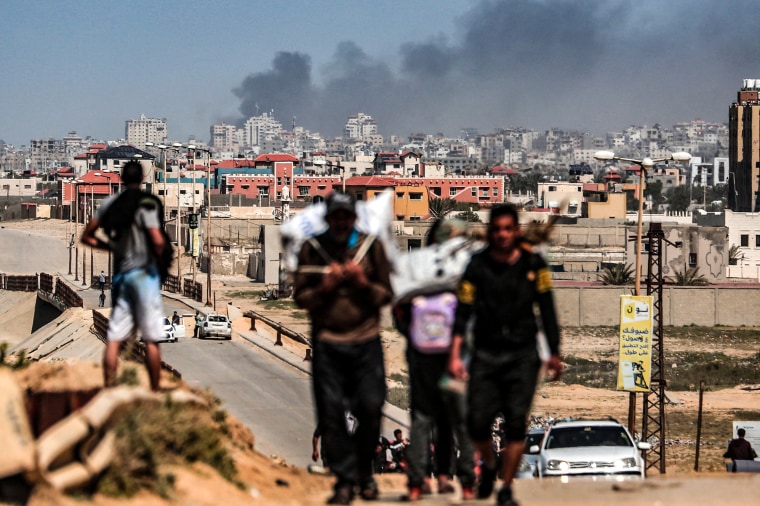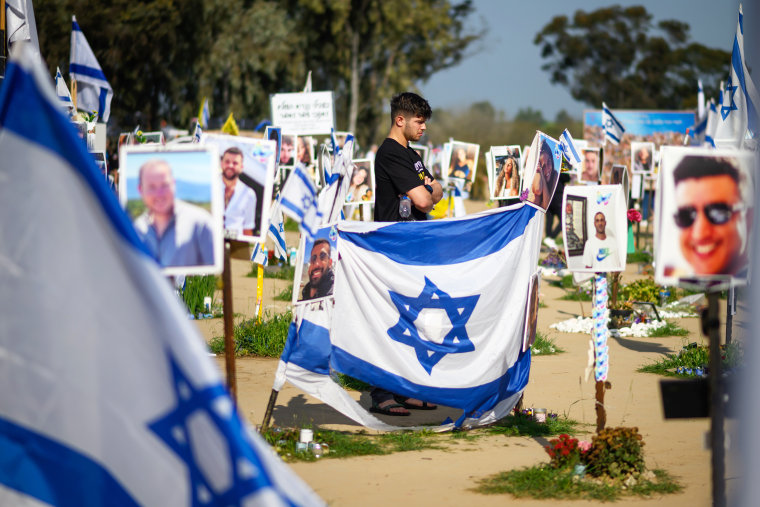A U.S.-led resolution calling for a cease-fire between Israel and Hamas in Gaza failed to pass in the United Nations Security Council on Friday as Russia and China, who are permanent members, voted against the measure.
Vassily Nebenzia, Russia’s ambassador to the U.N., said the resolution was exceedingly politicized and contained an effective green light for Israel to mount a military operation in Rafah.
Linda Thomas-Greenfield, the U.S. ambassador to the U.N., responded by saying that Russia and China “simply did not want to vote for a resolution that was penned by the United States.” She added that they would “rather see us fail than to see this council succeed even after inclusive consultations over weeks and weeks.”
The U.S. resolution stated that a cease-fire is imperative for the protection of civilians and to expand the distribution of aid to the more than 2 million Palestinians facing the threat of famine. It had no direct link to the release of those taken captive during Hamas’ surprise Oct. 7 attacks on Israel. But “toward that end,” it would unequivocally support diplomatic efforts “to secure such a cease-fire in connection with the release of all remaining hostages.”
The vote came as the U.S. is increasingly pressuring its ally over the situation in Gaza, with Secretary of State Antony Blinken in Israel on Friday for fraught talks likely to center on humanitarian aid and Israel’s insistence on a ground assault on the overcrowded city of Rafah.
Ahead of the vote, Nate Evans, spokesperson for the U.S. mission to the U.N., said in a statement that America had been “working in earnest with Council members over the last several weeks on a resolution that will unequivocally support ongoing diplomatic efforts aimed at securing an immediate ceasefire in Gaza as part of a hostage deal.”

Israel says 130 hostages remain in Gaza, although 34 have died in captivity.
The resolution marked a toughening of the U.S. stance toward Israel in the war, which is nearing its sixth month. Washington, which traditionally protects Israel at the U.N., has vetoed three draft resolutions, two of which would have demanded an immediate cease-fire. Last month, it justified that veto by saying it could jeopardize talks about a truce.
This was the fourth attempt to pass any kind of cease-fire resolution at the council. Thomas-Greenfield has vetoed three previous resolutions, in October, December and again last month.
February’s resolution tabled by Algeria received 13 votes of approval and one abstention from the United Kingdom. Russia and China were among those who criticized the U.S. for voting against the resolution for a third time.
Friday’s vote came after a report from the U.N.-backed Integrated Food Security Phase Classification initiative warned that “famine is imminent” in northern Gaza and that escalation of the war could push half of Gaza’s total population to the brink of starvation.

After it failed, French President Emmanuel Macron said that his country would work on a new resolution “with our American, European and Arab partners to reach an agreement.”
Israel is facing mounting international pressure, even from some of its closest allies, to allow more aid into the enclave. Tedros Adhanom Ghebreyesus, head of the World Health Organization, said Thursday that only an expansion of land crossings into Gaza could help prevent famine in the densely populated Palestinian enclave. Children are dying from the effects of malnutrition and disease, and from a lack of adequate water and sanitation, he said.
And earlier this week, Israeli Prime Minister Benjamin Netanyahu engaged in a public diplomatic spat with President Joe Biden over his plans to launch a military offensive on Gaza’s southernmost city of Rafah, where more than 1 million Palestinians are seeking shelter, many of them displaced by Israel’s military campaign in the north of the enclave.
The resolution also backed talks being brokered by the U.S., Egypt and Qatar over a cease-fire and emphasized support for using the period of a truce to intensify efforts in pursuit of “lasting peace.” David Barnea, director of Israel’s Mossad spy agency, was leading the Israeli delegations at the talks, Netanyahu’s office said in a statement Thursday.
The vote came after Blinken held talks with Netanyahu and his war Cabinet in Israel. Ahead of their meeting, Blinken said he would share alternatives to Israel’s planned ground assault into Rafah.
Blinken also met with the leaders of Egypt and Saudi Arabia to discuss cease-fire efforts and ideas for Gaza’s post-conflict future.






